#democratize music creation
Text
YouTube's AI Tool for Creators to Use Famous Artists' Voices: A Potential Game-Changer
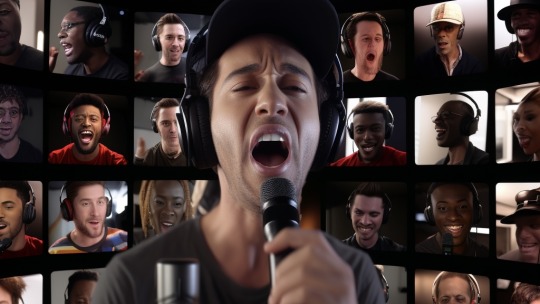
YouTube is reportedly in talks with record labels to develop an AI tool that would allow creators on the platform to use the voices of famous artists. This could have a major impact on the music industry and on the way that content is created on YouTube.
If the tool is developed, it will allow creators to create new songs, videos, and other content using the voices of their favorite artists. This could open up new creative possibilities and make it easier for creators to produce high-quality content.
However, there are also some potential concerns about the use of AI to create music. One concern is that it could lead to copyright infringement. If creators are able to use the voices of famous artists without their permission, it could violate the artists' intellectual property rights.
Another concern is that it could be used to create deepfakes, which are videos or audio recordings that have been manipulated to make it appear as if someone is saying or doing something that they never actually said or did. Deepfakes can be used for malicious purposes, such as spreading misinformation or damaging someone's reputation.
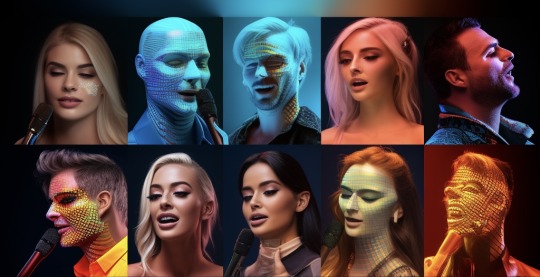
Here are some additional thoughts on the potential impact of this new tool:
It could democratize music creation. By making it easier for anyone to create music with the voices of famous artists, the tool could open up new opportunities for aspiring musicians and creators.
It could lead to new and innovative forms of music. The tool could be used to create new genres of music that would not be possible without AI. For example, creators could combine the voices of different artists to create unique and unexpected soundscapes.
It could change the way that music is consumed. The tool could make it easier for people to create their own personalized music experiences. For example, people could use the tool to create custom playlists of their favorite songs with their favorite artists singing them.
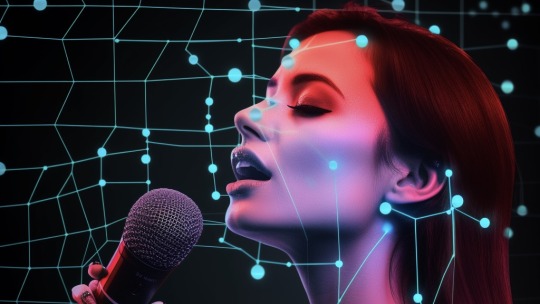
Overall, the development of this new tool is a significant event that can potentially change the music industry and how content is created on YouTube. It is important to monitor the development of the tool and to ensure that it is used in a responsible and ethical way.
#YouTube AI tool#famous artists' voices#creators#music industry#content creation#copyright infringement#deepfakes#democratize music creation#new and innovative music#personalized music experiences#music consumption#responsible and ethical use of AI#music technology#artificial intelligence#machine learning#deep learning#future of music#future of content creation#ethics of AI#copyright law#MusicTech#musiclife#productionmusic#musiccomposer#gamecomposer#musiccomposerformedia#musictech#musictechnology#musicproducer
0 notes
Text
Feminism and Pop Culture: A Complex Interplay.


In the contemporary socio-cultural landscape, the interplay between feminism and pop culture is both intricate and profound. Pop culture, encompassing various media forms like film, television, music, and literature, serves as a powerful vehicle for disseminating and challenging societal norms. Feminism, as a movement advocating for gender equality and the dismantling of patriarchal structures, finds a fertile yet contentious ground within this sphere.
The Evolution of Feminist Representation :
Historically, pop culture has been a double-edged sword for feminism. On one hand, it has perpetuated stereotypes and reinforced traditional gender roles. The early decades of cinema and television, for instance, often depicted women as passive, subservient, or overly sexualized. Such portrayals not only mirrored societal biases but also contributed to their perpetuation.
However, the feminist movement's waves have progressively infiltrated pop culture, demanding more nuanced and empowered representations of women. The 1970s and 1980s saw the emergence of strong female characters who defied conventional norms, such as Ellen Ripley in Alien and Sarah Connor in Terminator. These characters marked a shift, albeit a gradual one, towards a more complex portrayal of women in media.


Pop Culture as a Platform for Feminist Discourse :
In recent years, pop culture has become an increasingly significant platform for feminist discourse. The rise of social media has democratized content creation and dissemination, allowing feminist voices to challenge mainstream narratives more effectively. Movements like #MeToo have leveraged pop culture to bring issues of sexual harassment and gender inequality to the forefront of public consciousness.
Television series such as The Handmaid’s Tale and films like Wonder Woman and Captain Marvel reflect and amplify feminist ideals, resonating with audiences globally. These narratives not only provide entertainment but also serve as catalysts for discussions on gender politics, power dynamics, and societal change.



The Commercialization of Feminism :
However, the relationship between feminism and pop culture is not without its complexities and contradictions. One significant issue is the commercialization of feminism. Brands and media companies often co-opt feminist rhetoric for profit, diluting its radical essence in the process. This phenomenon, sometimes referred to as "commodity feminism," risks transforming a movement aimed at systemic change into a marketable trend devoid of its original political potency. The feminist slogan t-shirts, empowerment-themed advertisements, and "girl boss" narratives proliferating in pop culture can, at times, reduce feminism to a mere aesthetic or consumer choice, rather than a sustained commitment to gender justice. This superficial engagement with feminist ideals highlights the tension between authentic representation and commercial exploitation.

Intersectionality in Pop Culture :
A crucial aspect of modern feminist thought is intersectionality, a concept introduced by Kimberlé Crenshaw. Intersectionality posits that various forms of oppression, such as racism, sexism, and classism, are interconnected and cannot be examined in isolation. Pop culture's engagement with intersectionality has been mixed, with some progress and notable gaps.

For instance, while there have been strides in representing diverse female experiences, much work remains to be done. The success of films like Black Panther and shows like Pose demonstrates a growing recognition of the importance of inclusive storytelling. Yet, the underrepresentation and misrepresentation of marginalized groups, including women of color, LGBTQ+ individuals, and those with disabilities, persist as critical issues.
Conclusion :
The intersection of feminism and pop culture is a dynamic and evolving terrain. Pop culture holds the potential to both challenge and reinforce societal norms, making it a vital arena for feminist engagement. As consumers and creators, it is imperative to critically examine the media we engage with, advocate for more authentic and inclusive representations, and resist the commodification of feminist ideals. By fostering a more nuanced understanding of gender and intersectionality within pop culture, we can contribute to a more equitable and just society. The journey towards this goal is ongoing, requiring vigilance, creativity, and a commitment to transformative change.

#coquette#it girl#lana del rey#girlboss#jane birkin#vintage#girlblogging#60s girl#lanadelrey#lizzy grant#feminism#female rage#female#pop#culture#pop culture#films#literature#cool girl#girl interrupted#this is what makes us girls#this is a girlblog#blog#delusional#delulu#lana del ray aka lizzy grant#lana del ray aesthetic#lana unreleased#contemplative#sofia coppola
29 notes
·
View notes
Text
I genuinely think one of the best videoogame announcement trailers ever belongs to Wolfenstein: The New Order. Rebooting an old franchise for a new decade, it had to make a distinctive splash, and it did so with aplomb. I adore it because of the visuals and music alike. Under the cut below's an infodump looking through the scenes.
The music is composed by Mick Gordon of future DOOM fame, and is a mix that adds an excellent prequel to Jimi Hendrix's All Along The Watchtower. This is especially poignant considering Hendrix is, quite literally, a fairly prominent character in the game.
As for visuals, oh, where to start? Well, at the beginning.

It starts with automation, showing something being built - the Nazi World. The first thing this creation does is erode and collapse the Eiffel Tower, in the reflection of the machine carving out the Wolfenstein symbol, and in the process showing the subjugation of France. "It was a remaking," as Blazkowicz says.

Up next is London Bridge in a pool of water, a cooling pool for superheated metals. Barrage balloons hang above her... and then the jagged metal comes into frame. It cuts to five of them, fashioned into sharp knives - and they're plunged into the pool with an audio cue, the shadows of murdered humanity rises in the steam, alongside faint screams.

London, and Britain soon after, has fallen. "Unethical," indeed, Blazkowicz.
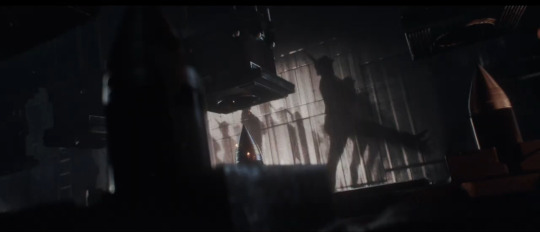
The next shot showcases the bullets being created. The drumbeats match that of a marching military unit, a Nazi parade goosestepping on the wall behind a conveyor belt. Upon it, bullets are being created, the Nazi war machine is ascendant, on the march, towards its next conquest.

Imperfections are carved out of the helmet of the chassis. In the sparks is shown the Statue of Liberty, wreathed in flame - and as the music swells, she loses her head and is visibly damaged.

The armour turns as the factory works on it, showing the Empire State Building defining the New York City cityscape. Bombers are in her skies, flames wreath her buildings, and she burns. "Some... unthinkable." The Nazis have come to American shores - and defeated the Arsenal of Democracy.
The weapons are loaded. Finishing touches on the robot's eyes. The World War is long over - this is a Nazi machine now. The music drops perfectly into the real intro of All Along The Watchtower. "Now they've built a new world..."

The eyes spark to life, an evil red. A flash of lightning pouring rain. "Armies, of steel, and thunder..." It pans out to show an army of robots just like the one we watched being built. "They're rewriting history..."

Captain William Blazkowicz, standing proud and defiant, shotguns in both hands. He can take 'em. He can take all of 'em. Finally, stopping on a key visual and showing the title Wolfenstein: The New Order...

"But they forgot about me."
In my opinion, I think it's not only a fantastic trailer in terms of visual and musical design, it was a great way to announce the return of the franchise. In a minute and thirty seconds, they depict the destruction of the Allied powers, the fall of democratic civilisation. But here comes our dashing hero, our growling classic FPS soldier man, back again - ready and willing to wreak havoc and kill nazis.
18 notes
·
View notes
Text
The Kamala Harris campaign is launching its own Twitch channel, where it will be streaming the vice president’s acceptance speech on Thursday.
The Twitch channel is part of the campaign’s broader strategy for engaging young and difficult-to-reach voters online. The account, which is under the handle of “kamalaharris,” joins the campaign’s suite of social and streaming accounts on Facebook, Instagram, TikTok, X, and YouTube.
“The VP’s address tonight will be one of the biggest moments of the entire campaign thus far—and we’re making sure we’re bringing her live to voters wherever they may be, Twitch included,” Seth Schuster, a Harris spokesperson, told WIRED in a statement. “Our job as the campaign is to break through a historically personalized media landscape, taking the VP and her vision for the future directly to the hardest-to-reach voters and those who will decide this election.”
The Harris-Walz campaign has invested heavily in digital, hiring more than 175 staffers across digital organizing, content creation, and digital advertising and fundraising. In the week after Harris jumped to the top of the Democratic ticket, the rebranded KamalaHQ TikTok account quintupled in followers, and its Harris-focused content received 232 million views and 33 million likes.
There are also 200 creators who have been credentialed to cover the Democratic National Convention this week. It’s the first time independent creators have been allowed access to the DNC, and they’ve been provided with opportunities to interview politicians and party leaders like DNC chair Jaime Harrison.
The Harris campaign isn’t the first to join Twitch. The Joe Biden and Donald Trump campaigns joined Twitch as well in 2020. Trump’s account was suspended following the January 6 attack on the Capitol and was only reinstated this summer. When the Biden channel launched, the Biden team streamed a live feed from the back of a train he was traveling on while playing lo-fi beats reminiscent of 24-hour relaxing music streams.
16 notes
·
View notes
Text
High Infidelity is about Miss Americana.
Notes before we begin: First, I can’t post screenshots from the doc bc Netflix, but I have pulled direct quotes and rewatched scenes over and over as I wrote this analysis. The more I watched, the more this theory made sense.
Second, while I obviously don’t know what Taylor Swift’s relationship with her dad is like, the clips in Miss American plus the song tolerate it are enough to convince me that he’s not/wouldn’t be accepting of Taylor being queer. There’s a reason she’s a mama’s girl. This is a Scott Swift hate account.
Let’s begin
Verse One
Lock broken,
A common interpretation of this lyric is the invasion of privacy that is someone reading your diary/journal. Having a locked diary is also something most common with young girls (only girls get privacy, sorry lads), and in Miss Americana, the first diary that Taylor shows in the first scene while she says the first words of the film is a diary that has a lock, and there’s also a closeup of another diary with a lock, as well as the words “bitch session.” There’s also the very common trope/reality of parents reading your diary. Speaking from personal experience, this can genuinely be traumatic, especially taking into consideration the next two words.
Slur Spoken
Seeing as Taylor is a white woman, I genuinely don’t know how else this can be interpreted besides a homophobic slur being spoken. $!u and b*!tch are derogatory, but that’s not the same thing as being a slur. Also, I’m not going to justify the “she’s talking about slurring words while drunk!!” interpretation bc that makes less sense than thinking the slur is “whore.” (I think the diary I mentioned that says “bitch session” is further proof that Taylor doesn’t consider ‘bitch’ to be a slur, even though she has called out the misogynistic way men use it in music.)
Wound open, game token
The person who is breaking this lock and speaking this slur and opening this wound is using Taylor’s pain as a means to get a prize. “You play stupid games you win stupid prizes” (MAATHBP), “You knew you won, so what’s the point of keeping score?” (hoax).
I didn't know you were keeping count
In the Man music video, during the tennis match, Scott Swift is playing the scorekeeper. This line is repeated multiple times in the song. The context of the repetition does change and develop throughout the song.
Rain soaking, blind hoping
I think this refers to the Lover era and how Taylor was not able to come out (specifically that video where she’s talking about ME! and looks sad as shit). I think it’s also a reference to Midnight Rain, rain being a metaphor for unexpected, unseen change, and also the isolation of staying hidden.
You said I was freeloading / I didn't know you were keeping count
As someone with a dad, I can confirm that this is very dad-coded. Like, I can’t think of a context in Taylor’s life where a romantic partner would’ve said this to her, especially considering how idk, rich and successful she’s been since she was a teenager? While I don’t think her dad would ever be justified in saying this to her either, it could be a reference to him throwing his role in her career in her face, the way we see in Miss Americana.
Chorus
This is where things come together in terms of being about Miss Americana.
High infidelity / Put on your records and regret me / I bent the truth too far tonight / I was dancing around, dancing around it
In order to produce a consumable product (the Lover journals) around her and her art, she had to dance around the full truth. The entries were meticulously chosen and most likely edited. In Miss Americana, the segment where she “comes out” as a democrat feels like it might’ve been a different kind of coming out story, especially when you factor in the creation of You Need To Calm Down. It comes across as extremely personal, and while there are multiple factors leading to the experience being emotionally charged for Taylor, I do think that her own queerness is one of those factors. The entire documentary feels like she’s dancing around a bent truth.
Put on your headphones and burn my city
Putting on headphones is shorthand for ignoring someone. “Burn my city” in the context of how Taylor equates her (former) lover with *a certain city* feels like an indication that the subject of the song did something to sabotage and burn down the relationship. I think this is a reference to how her career and the people controlling it (such as her father, but others as well) ruined the love she’s been singing about since reputation.
Your picket fence is sharp as knives
This also goes back to Midnight Rain (“my town was a wasteland, full of cages, full of fences”)
I was dancing around, dancing around it
Taylor has used dancing as a literary device throughout her discography. I believe it’s typically a metaphor for queerness.
Post Chorus
Do you really want to know where I was April 29th?
This goes back to the diaries from Miss Americana. This is Taylor being confronted about a journal entry from an April 29th where she wrote something gay. When *her dad* saw it, it led to a slur being spoken.
Do I really have to chart the constellations in his eyes?
This refers to the segment in Miss Americana that is allegedly all about Joe. Call It What You Want plays over a montage of videos filmed by an unseen lover. The only clip actually featuring Joe in the entire film is a single moment where Taylor and Joe look vaguely excited to see each other after one of the Rep shows. The way she wrote and sung this line makes it seem like charting constellations in some dude’s eyes is the last thing she wants to do.
Verse Two
Storm coming, good husband / Bad omen / Dragged my feet right down the aisle
This very much sounds like Taylor being forced to be romantically linked in a traditional, heterosexual way. The storm coming and bad omen are what led to her being pushed into this, likely the media storm that happened in 2016. It ties together the lines about pickets fences and how the rain referenced in the first verse is connected to Midnight Rain, because, as we learned with the very first track on Midnights, Taylor is not interested in 1950’s shit.
At the house lonely,
“To a house not a home all alone ‘cause nobody’s there,” Dear Reader
good money,
“the jokes weren’t funny, I took the money” from YOYOK is just one example of how the money comes at the cost of herself and who she is and her worth as a human being…
I'd pay if you'd just know me / Seemed like the right thing at the time
…but now she’s regretting paying that price, wishing that she could be truly known. It seemed like the right thing, but she’s realizing that it wasn’t. Alternatively, she regrets coming out to her and the price she now has to pay of knowing his love was conditional. She paid the price for being known. Also, during the clips that play during the segment allegedly about Joe, Taylor is singing Call It What You Want, specifically the lyric “At least I did one thing right” which is… devastating in this context. She also says:
But I wasn’t happy in the way that I was trained to be happy…It was happiness without anyone else’s input. It was just, we were happy.
Anyway she doesn’t seem happy anymore.
Pre Chorus
You know there's many different ways that you can kill the one you love / The slowest way is never loving them enough
This creates a strong connection to tolerate it. I feel like this lyric is the thesis of that song. Again, this is a very dad-coded lyric. It’s the slow realization that a parent’s love can be conditional. It’s like when a queer kid comes out and a parent says “I still love you, but…” There’s other contexts where that phrase could exist, but it’s an extremely common queer experience.
Do you really want to know where I was April 29th? / Do I really have to tell you how he brought me back to life?
I think this could refer to the narrative of Joe Alwyn being William Bowery (which is suspect at best and criminal at worst). She has to say that Joe helped her write devastating breakup songs like exile and champagne problems to keep up the narrative that they are in a VERY HAPPY relationship.
The next new lyric is in the third chorus and let’s just say I have thoughts about it.
Put on your records and regret meeting me
THIS LYRIC HAS BEEN DRIVING ME MAD FOR THREE MONTHS. In the other choruses she says “regret me,” but she changes it here to be “regret meeting me” in the last chorus. “Regret me” implies regretting the existence of Taylor Swift. It’s the people credited with kick-starting her career (such as her father!!!) putting on your records, a double-entendre for her albums + the awards and accolades she has earned for those albums. But! In this chorus! The lyric is! Regret meeting me! The promo for Midnights focused heavily on “meet me at midnight,” the concept that she would be showing who she really is with the album, so much so that people thought she might be coming out with this album. While I think this lyric is a reference to that narrative and the fear that her fans won’t get her or won’t like her after listening to Midnights, I also think it is about how her dad regrets learning who she really is, and how he therefore IGNORES IT by listening to the albums she wrote about me. This is the only lyric in the chorus that changes, and it’s seemingly such a small change, a single word added to the line, but that’s what makes it so massive. Because why would she change this lyric if not to completely change the meaning of the line? It’s drawing a distinction between regretting someone’s existence and regretting knowing the truth about them.
Oh, there's many different ways that you can kill the one you love
And it's never enough, it's never enough
I think the phrasing here implies that Taylor feels like she can never be good enough to earn the love she needs and deserves. This ties it, again, to the intro of Miss Americana where she’s going through her diaries and talks about how her main goal in life was to be a good girl.
Outro
The entire first chorus is repeated, and we have a new perspective.
You said I was freeloading
When it comes to this line specifically, I think it refers to the conversation about Taylor’s desire to speak publicly about politics, in which her dad throws in her face how he hired armored cars, essentially saying that she owes him something. It’s just phrased in an odd way and it makes everyone uncomfy.
I didn't know you were keeping count / But oh, you were keeping count
The repetition of the first chorus at the end of the song implies that this song is cyclical. It’s a loop that she’s trapped in. (If you put this song on repeat and turn up the crossfade, you can listen on a seamless loop). Tolerate It does the same thing. Repetition also draws attention to the lyrics while recontextualizing them. The last lyric (“but oh, you were keeping count”) is this acknowledgment that her relationship with this person was/is transactional.
What about the name of the song?
Okay, I’m convinced the only reason anyone would ever think this is a song about cheating is because of the title. Obviously, the primary definition of the word infidelity is cheating on a romantic or sexual partner. Nothing else in the song indicated cheating. SO. OBVIOUSLY. I GOOGLED. THE DEFINITION. TO SEE. WHAT. AN ALTERNATIVE. MIGHT. BE
unbelief in a particular religion, especially Christianity.
Jesus Fucking CHrist. Taylor Swift has called herself a Christian, and she has also written songs with overt religious themes, typically borrowing from Christianity specifically (Don’t Blame Me; False God; Would’ve, Could’ve, Should’ve; Soon You’ll Get Better). While I know that you can be queer and Christian, it is not unreasonable to conclude that coming out as queer to a conservative Christian (parent) would be considered a lack of belief in Christianity. Infidelity literally means “unfaithful.” To many people, Christianity and queerness are unreconcilable, to the point that they believe accepting yourself as queer can lead to you going to hell. While they won’t say this outloud, many Christians put “homosexuality” into a higher category of sin, meaning that being queer is HIGHLY UNCHRISTIAN, HIGHLY UNFAITHFUL, HIGH INFIDELITY.
One last thing. Miss Americana was released at midnight PST. Which is 3am EST. High Infidelity is a 3am track. So, yeah.
tl;dr
High Infidelity is about being considered unfaithful for being who you are. It’s about dying slowly because you are not loved (enough) for who you are. It’s about how the lies you’ve been forced to tell have forced you to be unfaithful to yourself. It’s about Miss Americana.
#gaylor#gaylor swift#taylor swift lyric analysis#high infidelity#midnights 3am edition#midnights#miss americana
206 notes
·
View notes
Text
Looking Back On: Fall Out Boy, “Folie à Deux”
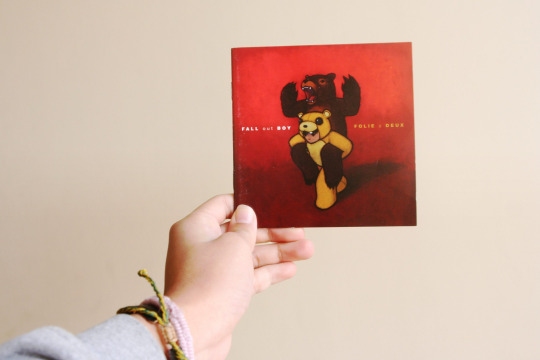
April 12, 2020
“Folie à Deux” came out when I was eight years old. Fall Out Boy (FOB) was a band I enjoyed but it wasn’t my favorite yet. That didn’t occur until 2010 when I got my first laptop and suddenly had access to play any music I wanted. After countless times listening, I came to think of it as one of the most musically intricate and well-developed albums FOB has ever produced. However, “Folie à Deux” didn’t sell well and ultimately contributed to FOB’s hiatus.
There is a plot in “Folie à Deux,” however, it is very hidden and not really understood without the additional “Fall Out Toy Works” comics, which was published in ‘09 and continued into ‘13. The comics are mostly unknown by many which makes talking about them all the more fun.
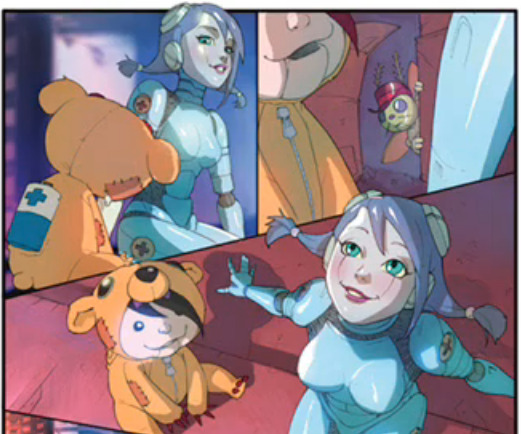
“Fall Out Toy Works” was created by Pete Wentz of FOB, Darren Romanelli and Nathan Cabrera. It is written by Brett Lewis and illustrated by members of Imaginary Friends Studios. The story is a cyberpunk tale set in futuristic LA centered around a gynoid (female android) named Tiffany, the Toymaker’s perfect creation. Think “Pinocchio” meets “Pygmalion.”
Baron is the main antagonist and his company controls the production of pretty much everything in Los Angeles, even the weather but he has no control over his relationships. He asks the Toymaker to create a robot wife for him, named Tiffany. Talking about the story any farther without spoiling the ending is hard.
The trade paperback and webcomic version both had the final page of issue 5 removed, which changed the entire tone of the ending. (It is relatively easy to find online, though.) There are so many things that the comics explain, even the meaning of the album’s cover art: the bear is a boy robot named Crybaby.
To promote “Folie à Deux,” the whole label of Decaydance Records artists did a mixtape of demos and custom songs called “Welcome to the New Administration.” The promotional campaign began on Aug. 18, 2008, when Decaydance’s website was supposedly hacked by a shady group called “Citizens For Our Betterment.”
The link led to the group’s website which was red, white and blue. Links on the page were blocked needing specific IP addresses to work. The Decaydance site was normal the following day.
The Citizens for Our Betterment web page was updated every day, many posts referring to Nov. 4, the same day as the 2008 U.S. presidential election. The locked links were gradually opened and by Aug. 24, one link led to a page saying “FOB – The Return – November Four” in large big bold letters.
This caused some fans to believe that Fall Out Boy would release their new album on Nov. 4. Others theorized that this was another one of Pete’s attempts to raise political awareness as he previously held a rally for then U.S. Democratic Party presidential candidate Barack Obama. Members of FOB members are publicly democrats.
Many bands from the Fueled by Ramen label posted on MySpace that same day with the title “Welcome to the New Administration.” Every post contained the word ten. On Aug. 25, the Citizens for Our Betterment website was redirected to the band’s Friends or Enemies page. On which was an image of a voting booth and ballots with the names of several Decaydance artists.
By clicking on each individual ballot, there was an audio clip from the band reading past posts on the Citizens for Our Betterment website. A mixtape was then made available for download. Listen to it here: https://www.youtube.com/watch?v=HUZKSsP8Sdo
As for the album itself, the album “Folie à Deux” itself is perfectly gapless as every song fades into the next. It starts with a hidden track called “Lullabye.” It’s a charming track featuring just acoustic guitar and Patrick singing. “Disloyal Order Of Water Buffaloes” is the first official song. The hook goes: “I’m a loose bolt of a complete machine. What a match, I’m half doomed and you’re semi-sweet.” These lines set the tone of the album with industrial elements and dark storytelling. The world of the Toymaker and how it intertwines with the music.
“I Don’t Care” kicks off with a classic rock tone, and the accompanying music video is zany and weird. Gilby Clarke from Guns N’ Roses starts the video by saying, “what the hell happened to rock and roll? Eyeliner? Energy drinks? And no guitar solos? I’ve taken sh*ts with bigger rock stars than them!”
The video is filled with miscellaneous sights. There’s the infamous spaghetti cat clip, band members dressed as nuns, Joe flashing people – and it ends with everyone removing a mask and being a different rock star. Clarke himself reveals himself being Sarah Palin in the end, winks.
It’s an all-round weird video. A reminder that ‘08 was a different time, but all and all it fit into the political climate.
Next on the album is “She’s My Winona,” named after actress Winona Ryder. It is a true bop and a slower-paced song with the chorus of “hell or glory, I don’t want anything in between. Then came a baby boy with long eyelashes. And daddy said ‘you gotta show the world the thunder’.”
This is followed by “America’s Suitehearts” with its nightmare carnival aesthetic that really adds to the story of the album and causes a lot of the nonsense to make sense.
“Headfirst Slide Into Cooperstown On A Bad Bet,” in which the beat goes hard but the lyrics go harder, follows. It’s a song blatantly about infidelity within a relationship. Considering Pete Wentz’s divorce, it’s safe to assume that this was somewhat based in reality.
The music video is labeled as “A Weekend At Pete Rose’s,” and is on the old FriendsOrEnemies YouTube channel. In it, Panic! At The Disco’s Brendon Urie and Spencer Smith carry Pete’s dead body around the city.
“The (Shipped) Gold Standard” is a sad masterpiece about fearing loving another person. This was written before gay marriage was legalized and at a time where the LGBT+ community found safety within emo music and the Fall Out Boy fan base because FOB supported them.
“(Coffee’s For Closers)” is a song about lost faith, and it hits hard especially with its placement behind “The (Shipped) Gold Standard”.
“What A Catch, Donnie” has a music video and it’s an odd, nostalgic chronicle of the band’s (at the time of the video’s creation) seven-year history. Filled with memorabilia for other music videos, the video shows Patrick saving his fellow bandmates, as well as Brendon Urie and Spencer Smith. The end of the song includes lines from Fall Out Boy’s most iconic songs at the time.
“27” jumps the pace back up to fast rock and fades into (all songs fade, but this is the best fade on the record) my favorite song on the album, “Tiffany Blews.” The song makes almost no sense at all lyrically but musically it slaps. The best explanation I can give is that it’s about a hot girl. Lil Wayne has a spoken section that is my favorite part. “Not the boy I was, the boy I am is just venting – venting. Dear gravity, you held me down in this starless city.” It’s such a perfect moment of breath in a nonstop album.
Next is “w.a.m.s.,” which is an acronym that has never had a confirmed meaning. But, the bass in it is so good, and the ending’s stripped vocals are as well!
“20 Dollar Nose Bleed” is about drug abuse. It includes vocals from Brendon Urie and ends with a creepy poem by Pete Wentz. “It’s not me, it’s you, actually, it’s the taxidermy of you and me / Untie the balloons from around my neck and ground me / I’m just a racehorse on the track, send me back to the glue factory…”
“West Coast Smoker” has the futuristic synth sound that ties the whole album together and that sound is on full display. The vocals pulsing with the music is almost spiritual. I’m skipping the remixes and acoustic versions off of the deluxe version. Instead, I’m hopping over to the bonus tracks.
“Pavlove” is criminally underrated, and such a good song. The heavy rock cover of Michael Jackson’s “Beat It” is also wonderful.
I love this album because every song in it is amazing – it goes without saying, “Folie à Deux” is my favorite album by my favorite band.
LeAnne McPherson
17 notes
·
View notes
Note
If you don't mind me asking - what do you think Dream's attitude/reaction towards Tolkien's works (including the legendarium!) would be? (I'm asking a lot of Sandman bloggers this, because I'm extremely curious regarding your takes on this.)
oh! hang on i gotta brush up on my tolkien because i haven't actually read any of the books since like. 2011.
i guess my main thought would be about how dream missed like, 95% of his work when he was stuck in his Jar. my understanding (read: google search) is that tolkien was building up the mythology for his stories before 1916 (when dream was captured), but most of it was not finished/published until a while after.
(this became an insane and mostly unrelated rant i am so so sorry)
i think a lot about how much of his own... area of work and power dream missed when he was trapped. the 20th century, generally speaking, was a time of rapid growth in storytelling methods and media more generally. dream missed almost all of radio, particularly radio as it became a medium for stories. radio was invented in the late 1890s but didn't see a proper rise into a storytelling medium, rather than mainly a direct communication one, until around the 30s. so dream missed the creation and growth of the first, i guess you would call it, networked storytelling, and technological storytelling, and what was... probably? the biggest return to an auditory type of storytelling since the original oral tradition, folk tales, great epics etc, for radio at its peak of cultural relevance (at least in the US and probably the ""West"" more generally, alas i can't speak as knowledgeably for other parts of the world, obviously plenty of other parts of the world had radio in the early 20th century and onward, but i don't know much about its use as a fictional storytelling medium versus for news and government broadcasts. something to look into! part of why radio became such a medium in the usa was because of our rampant capitalism and commercialism lol, so less capitalistic places might have approached it differently - here, advertisers wanted to figure out a way to monetize radio better, but obviously people aren't going to just listen to hours of ads, so they packaged them around stories, live music performances, and variety shows. that's where soap operas as a form come from -- they were originally sponsored by soap companies! also serials, though of course books have also been serialized in the past. and sponsored radio programs also birthed the sort of episodic comedies that eventually evolved into the half hour TV comedies we know today)
which also means - as a direct result of missing radio, dream also missed the rise of television as a medium - it grew directly out of radio, even the big networks we know today, CBS, NBC, and ABC were originally radio networks. television has ended up being a huge change in visual storytelling, not only in its inception, but especially in its more recent years - it's probably the only long-form audiovisual storytelling medium, which is something that didn't really exist before. huge shift in storytelling possibilities. he also missed the development of comic books, and the internet, and the resulting increased accessibility of art and storytelling to both artists and art lovers. he missed an absolutely huge, HUGE shift in the democratization of art and the ability to share it. and, once again, the development of totally new methods of storytelling in the form of internet video! not to even mention the accessibility of MUSIC, music recording and sharing was still in its infancy when dream was imprisoned and now you can get, and make, and share pretty much any music imaginable! and the new genres! and the intermediality of everything and the cross-cultural awareness!
this is not even getting into the new ease of photography, or film, which was also relatively new in 1916. imagine going into a coma when there were only silent films, and waking up to everyone and their mother making tiktoks. the last film you saw was one of chaplin's or something and then you come back and see interstellar in imax 3d. i think i'd explode. (dream would love film, too, it's very dreamlike)
dream returning to the waking world in 2022 and immediately having the entirety of tiktok beamed directly into his head:
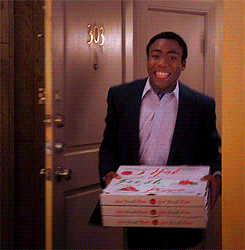
(another thing i think about a lot but won't get into because i'm already rambling - hob witnessing the entire development of accessible writing from the printing press to fucking social media. insanity. i want to pick his brain on it
what pushed hob over the edge, do you think. what's the one thing he saw written online that briefly made him regret ever getting involved in printing at all and wish everyone was illiterate again. it was not porn, btw, mr. monsterfucker gadling can handle anything, ok. no, it was something much worse...)
anyway. rambling over. this is all to say that i am not a tolkien expert and haven't read much of his stuff anywhere recently - though i was quite obsessed with it in middle/high school - so my main thought is in relation to dream getting cut off from all of these great stories. it must have been like, to put it flippantly, your favorite tv show getting cancelled halfway through after a cliffhanger XD. he has all these stories from great storytellers - tolkien included - storytellers who are building their whole own worlds in his realm, storytellers he's nurturing and supporting in his own way - and gets ripped away from them. and when he returns, they're all gone.
here's hoping someone who knows more about tolkien can give you an answer more specifically relevant to that. that's all i got for now 😂
#never get me started talking about media history. then again i kinda started myself on it this time#thanks for the ask! sorry for the lack of relevant answer lol#dream of the endless#tolkien#hamelin-born#ask#i think dream would actually like tiktok after he got over the sheer volume of existing content lol#like i feel like the endlessness and interconnectedness of the internet is similar to how it already feels in his mind#media history#belatedly thinking AGAIN about all the stuff dream missed like all of the cultural changes? the story genres? the new poetry and new style?#NEW ART MOVEMENTS? THE MOVEMENTS HE MISSED. DREAM MISSED FUCKING SURREALISM THAT IS UNACCEPTABLE IT WAS LITERALLY INSPIRED BY HIM#all the subcultures of story and art creation he missed. i'm gonna lose it actually
103 notes
·
View notes
Text
Marc Masters — High Bias: The Distorted History of the Cassette Tape (University of North Carolina Press)
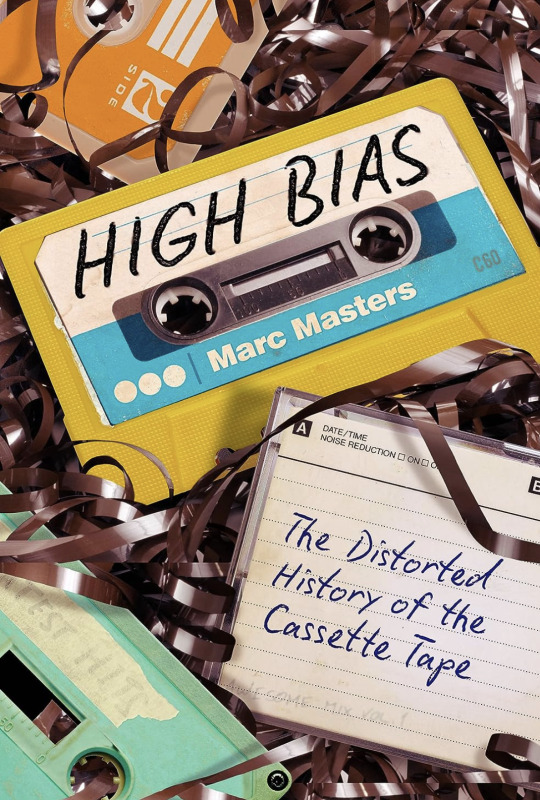
There’s a popular theory, advanced with varying degrees of seriousness, that the best kind of music is whatever was released when you were about 16. There’s also a fairly well-known Brian Eno quotation about the way we tend to romanticize forms of media just as they fall out of currency, eventually becoming loved even for their shortcomings. One of the biggest strengths of Marc Masters’ High Bias, a new history of the compact cassette (as it was originally known), is that it refuses both the personally biased special pleading of the former and the possibly distorting format nostalgia of the latter. Instead Masters brings together a fascinating technical history of the creation, limits, and virtues of the cassette tape, an overview of some of the areas where the medium has been most richly used and adopted, and a reflection on its continued vitality.
That last aspect, which is reflected on throughout High Bias and forms the focus of the book’s last chapter, is one example of the balance Masters manages to strike. It would be easy to fall into a kind of strenuous insistence on the most optimistic vision of the cassette’s future, to tell us that it could or should regain a level of prominence it hasn’t seen in decades. But to do so would require a… selective choice of data, and would probably fall into a kind of “protesting too much” register for many readers. Masters instead has the confidence and knowledge of the actual current (vital, but subcultural) role of cassette tapes to make the more modest but resonant point that the ‘cassette revival,’ such as it is, is already with us and shows no signs of going away. And he both puts this in its proper, inspiring context and makes a persuasive case for its importance because of the book’s continual emphasis on the democratizing and personalizing aspects of cassette tape as a medium.
The opening chapters, which include relatively brief looks at the context of recording technology prior to and at the time of the cassette’s introduction, set the stage well. Masters doesn’t shy away from acknowledging the social, marketing and profit motives impinging on the development and success of the medium (and the sometimes panicked response of the music industry to it, “home taping is killing music” and all), and points out how those aren’t totally separable from the explosion in personal expression that tapes allow. From there, High Bias branches out, looking at various places and times cassettes have helped or even allowed particular peoples, scenes or genres to be heard and spread in ways other media haven’t managed. From Deadheads to the early days of hiphop, Awesome Tapes From Africa to some of the more extremely personal examples that sometimes overlap with those covered in Michael Tau’s recent Extreme Music (reviewed on Dusted here), this slim volume doesn’t pretend to be exhaustive but does manage to illuminate enough different areas most readers may find themselves surprised by at least one of the many little pockets Masters looks into.
The second-last chapter, “The Tape Makers,” may be where High Bias hits many of its intended audience in an even more personal place. Here the book shifts slightly from people making music onto, or then distributed via, cassette, and instead delves into the personal mixtape. The balance between creation and curation is never that clearcut, of course, and the chapter doesn’t pretend it is. But whereas after the cassette we have burned CDs and playlists, before the team at Philips first brought the compact cassette to the world there was simply no mass-available form that offered the particular form of expression that a mixtape does. As with the rest of High Bias, here Masters uses a blend of interviews, secondary sources and direct experience to convey the unique role and impact of the cassette, both in its historical moment and persisting into the current day.
It’s not that the cassette tape is a “better” medium than vinyl, CD, DAT, or saved or streamed digital files (what would “better” even mean in anything other than a subjective sense?), and it’s not that High Bias, despite its doubly accurate title (both a desired quality in a cassette and an implicit acknowledgment that this a very pro-tapes book), tries to make that claim. But Masters clearly had in his sights a compelling portrait of the strengths of the format, and what makes it different from those other media, and here he convincingly portrays it as a special and worthy one. He’s even set up a, well, mixtape for the book on Bandcamp (linked at the beginning of this review), 12 tracks all sourced from current tape labels he discusses in the book. Notably, you can buy that mix on a cassette.
Ian Mathers
#Marc Masters#High Bias: The Distorted History of the Cassette Tape#University of North Carolina press#Ian Mathers#bookreview#dusted magazine#cassettes#history#technology#DIY#mixtapes#Bandcamp
15 notes
·
View notes
Text
Artificial Intelligence Revolutionizes the Music World: The Case of "Neural Notes Revolution"
Artificial intelligence (AI) is rapidly transforming our world, permeating sectors from healthcare to industry, education to transportation. This technology, which aims to replicate and surpass human cognitive abilities, promises to revolutionize the way we live and work.
The applications of AI are numerous and ever-expanding: from medical diagnosis to autonomous driving, data analysis to content creation. A particularly intriguing field is music, where AI is demonstrating remarkable potential.
Recently, there has been much discussion about AI-based music generation platforms like "Suno" and "Udio," accused of violating numerous artists' copyrights to train their algorithms. These controversies highlight the complex ethical and legal issues that AI raises in the artistic field.
In this context, the Italian project "Neural Notes Revolution" emerges, demonstrating how, with the aid of AI programs, the study of algorithms suitable for targeted generation of musical styles, voices, song structures, and with adequate post-processing, it's possible to produce musical pieces of any genre and style, in any language, in relatively short timeframes.
The project also leverages other generative AI platforms such as OpenAI's ChatGPT (Microsoft group, of which Elon Musk was a co-founder), Anthropic's Claude AI, and Google's Gemini. These technologies allow for the generation of texts, both original and based on precise or imaginative prompts, in numerous languages, even using expressions typical of specific localities and dialects.
However, "Neural Notes Revolution" still faces some challenges. The results provided by ChatBOTs require careful verification, and in the music field, generation platforms have significant limitations. In particular, "Suno" and "Udio" lack a precise and rigorous syntax that allows for accurate results. Often, the outcomes are even opposite to those desired, forcing a trial-and-error approach. One of the major limitations is the near-total impossibility of having clear style changes within the same song.
Expected future developments include the ability to modify produced songs in a targeted manner. It would be useful to have separate files for the vocal part, the musical backing, and the lyrics in subtitle format. Moreover, there's hope to be able to modify individual parts of text or music, and above all, to have a correct and rigorously respected syntax for the song structure and use of styles.
The use of these platforms raises several issues. On one hand, they offer new creative possibilities and democratize music production. On the other, they raise concerns about copyright, artistic authenticity, and the future of work in the music industry.
In conclusion, while giving space to creativity, we are still far from competing with the styles, voices, and tones of artists of all time. However, in defense of the "new artists" of the AI era, it must be recognized that creativity and skill are still necessary to produce musical pieces of a certain depth. This is particularly relevant in a modern musical landscape that often offers music devoid of artistic and cultural significance. AI in music thus represents both a challenge and an opportunity, requiring a balance between technological innovation and preservation of human artistic expression.
#neuralnotesrevolution#ai#Artificial Intelligence#AI and Music#AI Music Generation#AI-Generated Music#Musical Algorithms#Digital Music#Musical Innovation#Music Technology#Automated Composition#Artificial Creativity#AI Music Production#Future Music#AI in Music#Music and Technology#AI Musical Instruments#AI-Assisted Composition#AI Music Software#Neural Networks and Music#AI in Music Industry#AI Music Innovations
2 notes
·
View notes
Text

The Work of Art in the Age of Artificial Intelligence
In the contemporary era, the advent of Artificial Intelligence (AI) has ushered in a new paradigm in the creation, distribution, and perception of art. Much like the advent of mechanical reproduction in the early 20th century, AI's capability to generate and manipulate artistic works poses profound questions about the nature and value of art. This essay explores how AI is reshaping the artistic landscape, examining the implications for originality, authenticity, and the role of the artist.
The AI Revolution in Art
Artificial Intelligence encompasses a range of technologies capable of performing tasks that traditionally require human intelligence. These include machine learning algorithms, neural networks, and generative adversarial networks (GANs), which have demonstrated remarkable proficiency in creating visual art, music, literature, and more. The ability of AI to autonomously generate complex and aesthetically compelling works challenges long-standing notions of creativity and artistic authorship.
Reproducibility and Originality
In the age of mechanical reproduction, Walter Benjamin argued that the unique "aura" of an artwork is compromised when it is reproduced. With AI, the concept of originality is further complicated. AI systems can analyze vast datasets of existing artworks and synthesize new creations that are indistinguishable from human-made works. The reproducibility of AI-generated art is virtually limitless, raising questions about what constitutes an "original" piece. When an AI can produce thousands of variations on a theme, each unique yet derivative, the traditional concept of a singular, original masterpiece becomes elusive.
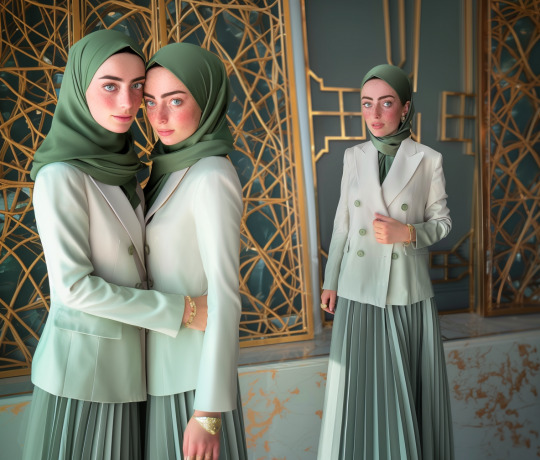
Authenticity and Authorship
AI-generated art prompts a reevaluation of authorship. Traditionally, the artist's hand and vision have been integral to the value and authenticity of an artwork. With AI, the creator is often a programmer or a team of researchers who design and train the AI model, rather than a single, identifiable artist. This decoupling of the artist from the artwork challenges the Romantic notion of the artist as a solitary genius. Instead, the creation process becomes a collaborative interplay between human ingenuity and machine capability.
Transformation of the Art World
The integration of AI into the art world is transforming both the production and consumption of art. On the production side, AI tools are being used by artists to expand their creative horizons, offering new methods and materials for expression. For instance, AI can generate visual elements, suggest musical compositions, or even write poetry, serving as both a collaborator and an assistant to human artists. This symbiotic relationship enables the exploration of novel artistic territories that were previously unimaginable.
On the consumption side, AI is also reshaping how audiences engage with art. Personalized algorithms can curate art experiences tailored to individual tastes, enhancing accessibility and democratizing art appreciation. Virtual and augmented reality, powered by AI, offer immersive art experiences that transcend physical boundaries, allowing audiences to interact with art in unprecedented ways.
Conclusion
The age of Artificial Intelligence heralds a new epoch in the history of art. As AI continues to evolve, it will undoubtedly continue to challenge and redefine the fundamental concepts of originality, authenticity, and authorship. While the full implications of AI's integration into the art world are still unfolding, one thing is clear: the dialogue between human and machine creativity will be a defining characteristic of this era.
Original ChatGPT Article. (7, 2024)
2 notes
·
View notes
Text
The Hidden Influence of Media on Our Lives
Intro
Hey everyone! Today, I want to talk about something that affects all of us in ways we might not even realize: the power of media. From TV shows and movies to social media and streaming platforms, media has a profound influence on our lives, shaping our dreams, behaviors, and even our realities.
I’ve been reflecting on how shows like iCarly and Video Game High School inspired my dreams of becoming a content creator and making a name online. It’s fascinating how media can shape our aspirations. Have any of you been influenced by shows or games in your career choices or dreams? Let’s share our stories and talk about how media has inspired us.

Personal Anecdotes:
Not only TV series, but games too. Lately, I’ve been imagining myself living through a game of Super Mario, rescuing the princess kidnapped by Bowser and all that. I think it makes life a little more entertaining when you can draw parallels from your life to your favorite artworks.
Can any of you relate? What shows or games have influenced your dreams or the way you see the world? Feel free to share with me!

Media Influence and Power:
It really makes me wonder how much power media has over us. It makes me think how it’s not too far-fetched that the government might want to manipulate or put subliminal messages in media as part of a psyops agenda.
For those who might not know, psyops are tactics intended to manipulate opponents or enemies, often through the dissemination of propaganda or the use of psychological warfare.

Historical Context and Examples:
Let’s think about some examples. In history, we’ve seen how propaganda has been used during wars to influence public opinion. In more recent times, we’ve seen concerns about fake news and how social media algorithms might shape our perceptions.
What do you all think about this? Have you noticed any ways that media has influenced your thoughts or actions? Do you think there are subliminal messages in the media we consume today? Let’s dive into this topic together!

Personal Reflection and Media Literacy:
For me, recognizing these influences has made me more mindful of the content I consume and how it affects my thoughts and feelings. I try to balance my media diet with different perspectives and sources to stay informed.

America's Role as a Leading Media Distributor:
I think it’s interesting to think about how America is the leading distributor of media and always has been. In the early days, it was Hollywood and television. Today, they are using the internet, with platforms like Netflix, YouTube, and Twitch, as well as all the other major streaming sites.
Let’s take a look back. Hollywood has been the epicenter of the film industry since the early 20th century. Movies produced in Hollywood reached audiences around the world, setting cultural trends and shaping global perceptions of American life and values.
Television further expanded America’s media influence. Shows like ‘I Love Lucy,’ ‘The Twilight Zone,’ and ‘Friends’ became international hits, spreading American culture and ideals far beyond its borders.
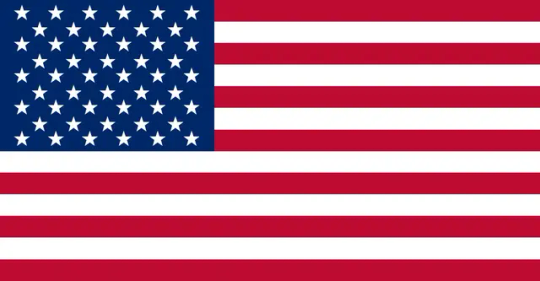
The Modern Media Landscape:
Fast forward to today, and the internet has taken over as the primary medium for content distribution. Platforms like Netflix, YouTube, and Twitch are at the forefront, delivering content to millions of people worldwide.
Netflix, for example, started as a DVD rental service and has evolved into a global streaming giant. It produces and distributes original content that competes with traditional television and film studios.
YouTube has democratized content creation, allowing anyone with an internet connection to share their videos with the world. This has led to the rise of influencers and content creators who can reach audiences without traditional media gatekeepers.
Twitch, primarily known for live streaming video games, has become a platform for all sorts of live content, from talk shows to music performances.

Impact of American Media:
American media’s influence is profound. It shapes cultural norms, trends, and values globally. Think about how many global phenomena have originated from American media: superheroes, blockbuster movies, reality TV shows, and even internet memes.
There are also economic and political implications. American companies dominate the streaming landscape, generating significant revenue and exerting soft power.
Soft power is the ability to influence others through cultural or ideological means, rather than force. By spreading American culture and values, these media platforms can subtly influence global perceptions and attitudes towards the U.S.
While American media is dominant, it’s also interesting to see how local cultures adapt and respond. Many countries produce their own content that blends local traditions with global trends, creating unique hybrids.

What are your thoughts on this? Have you noticed how American media has influenced your perceptions or the culture in your country? Let’s discuss how media shapes our world.
Challenges and Criticisms:
Of course, there are criticisms too. Some argue that the dominance of American media can lead to cultural homogenization, where local cultures are overshadowed by global trends. Others point out the concentration of media ownership and its impact on diversity of viewpoints.
Looking ahead, it will be interesting to see how media evolves. With the rise of new technologies like virtual reality and artificial intelligence, the landscape will continue to change. Will America maintain its leading role, or will other countries rise to prominence in the media world?

Closing Thoughts:
It’s always fascinating to think about how media shapes our world and our perceptions. I’d love to hear your thoughts on this topic. Make sure to share your opinions in the chat or comments!
#media#media criticism#media literacy#critical thinking#the internet#media analysis#social media#humanity#ethics#communication
2 notes
·
View notes
Text
The Rise of AI Technology in the Music Industry: Innovation or Threat?
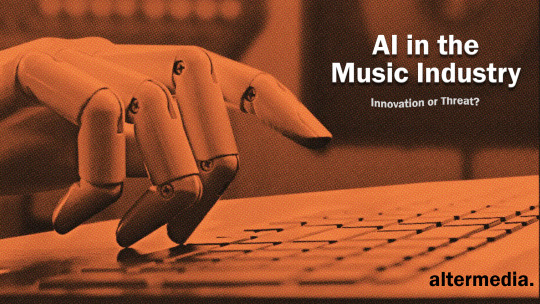
What is it?
The growth of artificial intelligence (AI) technology in the music industry has sparked both interest and concern. This aims to shed light on the intricate relationship between AI technology and the essence of musical creation by taking into account the opinions of musicians, industry professionals, and technology experts. Ultimately, it asks whether AI represents an adverse impact or a harmonious evolution in the music industry, as artificial intelligence or AI technology has played a significant role in the advancement of the music industry in the last few years. As time passes, AI technology are becoming more utilized in every step of the recording, distribution, and listening of music. The controversy whether AI technology is pushing the music industry ahead or a threat to the traditional way of creating music has been raised by the growing integration of AI in the industry.
Artificial Intelligence X Music Collab?
Traditionally, music production required expensive equipment and a skilled professional to augment the creative process. AI powered tools enable professional ro amateur music producers to freely create professional-sounding tracks with minimal resources. AI can aid in mixing, mastering, and even generate realistic voice recording. This democratization in music production creates a diverse and empowering realm for artists who may have had access to traditional production resources.
In contrast, the use of AI in music production raises concerns regarding the possibility of decrease of an artist's authenticity. Is it possible for a machine to accurately convey the human feeling through music? According to critics, this could result from an over-reliance on AI, with algorithms prioritizing formulae that are economically successful over the unfiltered, and genuine passion that artists and musicians bring to the table.
While AI can undoubtedly do the whole creative process of creating music, it lacks the essence of human-like touch to it. The raw emotion of musicians embedded in every piece of art that they do is certainly irreplaceable. The challenge for the music industry is to find balance between using AI as a tool for innovation and preserving the authenticity of the art form.
Conclusion
We agree with using AI technology since it has many advantages and makes our work lives easier. From its efficiency to quality enhancements.
AI technology provides the music industry with a number of advantages, since it can have a significant impact on our careers and open up countless opportunities for us. Similarly, on improving creativity and making it more accessible, as AI transforms the process of making music,. However, this does not imply that we should be relying on AI technology. It has potential drawbacks as it is made by a robot and not through a human’s passion. For instance, it has no human touch; it lacks emotions. And the dependency on technology leads to the decline of traditional music skills, as trusting in automated works loses the musical intuition of a human produce. The further we go in understanding and learning the pros and cons of AI technology, in the point-of-view of the music industry, it'll leave as a threat, as human passion through music won't be present, as music is known for connecting people to one another emotionally.
2 notes
·
View notes
Text
We are living in the best time for music since it became commodified.
I've been working on a big ol' post for the last few weeks, but I like to get out at least two posts a month here, so I thought I'd make a quick post about a bold claim, but a positive one, that I've been thinking about for a little while now: we are living in the best time for music since it became commodified.
I initially thought this when my parents were listening to the radio and I realized that there was more creativity to be gleaned from the music being played on average than I always remembered. Of course, the format is antiquated and I'm baffled as to how anyone that can afford to use anything else at all would choose to listen to the radio, but I digress. I realized that, either the lowest common denominator is more demanding now than ever before in my lifetime, or it was more viable to cater to niches.
One thing I do want to make clear before going on (tangent in green) is that I'm not talking about the financial side of music here. I'm speaking purely on the quality and creativity of the output. Economically speaking, music is a mess, and while I believe the hate for streaming as a format is overblown and over-reliant on attention grabbing statistics than reason, it'd be hard to deny that musicians do deserve a bigger slice of the pie, both in regards to the money they share with the streaming services and the money they share with their own label. And the economics of live music is still absolutely fucked too. But you know all this, lets get back to my hot take.
My reasoning for why I believe the title's statement to be true is quite simple: I don't think we've ever had this high a quality of music on every level of popularity. Whether an artist is a no-name, a popular niche act, or a superstar, there is a good chance that they will be putting out decent music and I believe it's never been so unlikely that it is a mere vehicle for cynical monetary gain.
Point 1: Democratization of Music Creation
It would be possible to argue that the reason I find music to be so good right now is simply because there is so much more, and that generally good stuff is more likely to be heard. Although I don't believe it is as simple as "good music rises to the top", I would agree that the democratization of music plays a big role.
Some might view that cynically, as a simple case of throwing everything at the wall and seeing what sticks, but I view it more optimistically. I prefer to see this massive spike in music released and think of all the artists that are now able to get their ideas into the world.
Point 2: Widespread Opportunity for Exploration and Inspiration (Artists)
This is, I think, the most important point. We are now seeing artists come through who were using streaming services in their most formative years for music taste, and by extension, inspiration. That means we are currently seeing artists who, in comparison to their predecessors, are far more exposed to a larger range of musical styles, which makes them less bound to each individual one. I believe that leads to artists who are able to wield more tools to evoke an emotion within the listener far more effectively.
Point 3: Widespread Opportunity for Exploration and Inspiration (Listeners)
It's a very similar point to the last one, but it is itself significant. That being the point that audiences have a broader palette than they used to, which I believe is the biggest reason that pop music in particular has been so interesting compared to previous decades. The most popular music around isn't nearly as beholden to trends, and even when trends do exist, they are as interesting as the trends in any other time in music history.
So those are my general thoughts on how music has become what I believe to be the best it's been since it became commodified. Just a quick one to satiate that part of my brain that was telling me to get another post out. What do you think? Am I delusional? Do you agree? Why? I'd love to hear people's thoughts.
6 notes
·
View notes
Text
Extrapolation of the potential effects of generative AI based on the effects of the invention of the printing press
Here are some of the major historical events closely related to the invention of the printing press:
Gutenberg Bible (1455): Considered the earliest surviving book printed with movable metal type in Europe. This was Johannes Gutenberg's magnum opus and demonstrated the viability of printing. It helped spread the printing press technology across Europe rapidly.
Spread of Humanism (15th century): The rise of humanism emphasized classical learning and education of the population. This created demand for books which fueled the growth of printing. Works of scholars like Erasmus were widely printed and disseminated.
Protestant Reformation (16th century): Martin Luther effectively used the printing press to mass produce and distribute his 95 Theses and other writings criticizing the Catholic church. This helped spark the Protestant Reformation movement by disseminating ideas to a wider audience.
Decline of scriptoria (15th century): As the printing press became dominant, it replaced handwritten manuscript production in scriptoria attached to monasteries. This was a major cultural shift from manuscript to print culture.
Vernacular literature (15th-16th century): The printing press enabled literature to be published in local languages rather than just Latin, making it accessible to the general populace and helping establish national identities and cultures.
Scientific revolution (16th-17th century): New scientific ideas could be widely shared through printing, accelerating processes of data collection, experimentation and debate. This was instrumental to the scientific revolution.
In summary, the printing press was a key driver of the dissemination of ideas during major social, religious and intellectual changes in the early modern period in Europe. It helped enable the spread of humanism, Reformation, rise of vernacular languages and acceleration of scientific progress.
Here is an extrapolation of the potential effects of generative AI based on the effects of the invention of the printing press:
Democratization of content creation: Generative AI tools may allow more people to easily generate all kinds of creative works like images, videos, writing, music etc. This could mirror how printing expanded authorship.
Accelerated spread of ideas: AI-generated content could propagate new concepts rapidly online, just as printing disseminated humanist texts and revolutionary writings more broadly.
Shift from scarcity to abundance: Generating AI may replace scarce, costly manual production with abundant, cheap automated creation like printing replaced hand-copied manuscripts. This could impact creative industries.
Empowerment of grassroots movements: Citizen-led causes may leverage AI tools to amplify messages through generated visuals/narratives online, paralleling how printing aided reformers like Luther.
Rise of AI-generated literature: Entire books, stories, poems could be algorithmically written, analogous to printed vernacular texts establishing new cultural forms.
Democratization of knowledge: Open-source generative models may make specialized expertise like science/medicine/law more accessible to all through synthesized content.
Accelerated scientific progress: AI models generate hypothesis, analyze data at vast scales, freeing up researchers to confirm/falsify ideas faster through collaborative online science like printing sped up process.
Changes to intellectual property: Widespread AI generation may challenge existing models of ownership over creative works as printing did for copying manuscripts.
Of course, there are also risks such as misuse, bias, and economic disruption to consider with generative AI that echo concerns raised historically over printing technologies.
Overall impacts will depend on how generative tools are developed and governed.
r56CCGBPsF1s1g1lQ5PX
2 notes
·
View notes
Text
The Great Equalizer: How Technology Democratized Music Production by Gary Dranow

Hey there, fellow music lovers!
I'm Gary Dranow, and today, we're diving deep into a phenomenon close to my heart: the democratization of music production through technology. Gone are the days when you needed a multi-million dollar studio to craft a masterpiece. In this modern era, your laptop and a spark of creativity might just be enough!
From Exclusivity to Accessibility
Historically, the realm of music production was reserved for those with the means to access high-end studios and equipment. However, technology has been a great equalizer, leveling the playing field and providing everyone the opportunity to become a music producer.
Affordable Beginnings with GarageBand
Enter GarageBand – Apple's gift to budding musicians. This free software, preloaded on every Mac, offered a suite of production tools that, while basic, were more than enough for many to start their journey. GarageBand made it possible for anyone to dabble in music creation, recording, and mixing without any initial investment.
The Rise of Advanced DAWs
For those who sought more advanced capabilities, software like Ableton Live, Logic Pro, and FL Studio entered the scene. They offered a professional-grade music production environment at a fraction of the cost of traditional studio setups. Ableton Live, for instance, is not just a DAW but a performance instrument in its own right, empowering DJs and electronic musicians globally.
Online Platforms: The Power of Collaboration and Learning
The internet has further pushed the boundaries. Platforms like SoundCloud and Bandcamp provide artists a space to share and monetize their music. Meanwhile, collaboration tools such as Splice and Endlesss have made remote collaborations seamless.
For those keen on learning, there's a vast universe of online resources. Websites like Coursera, Udemy, and Skillshare offer courses on everything from basic music theory to advanced production techniques. And let's not forget the plethora of YouTube tutorials, where seasoned professionals and enthusiastic amateurs alike share their knowledge.
Conclusion: A New Era of Music Production
The landscape of music production has undeniably transformed. Today, a teenager in their bedroom has the same power to produce music as a professional in a high-end studio. This shift has led to a beautiful diversity in music, with genres and sub-genres flourishing, and voices from all corners of the world being heard.
While technology has made music production accessible, it's the passion, creativity, and soul of the artist that truly makes a piece resonate. So, to all the budding producers out there – the world is your oyster, and your soundtrack is waiting to be written.
Until our next musical discourse, keep experimenting, keep learning, and most importantly, keep producing.
Warm regards,
Gary Dranow
3 notes
·
View notes
Text
EDM's Impact on Music 2018-2023
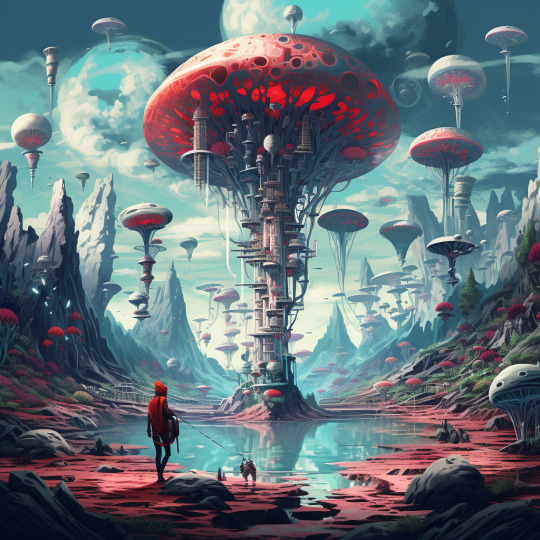
Has the genre finally made itself fully mainstream?
Electronic Dance Music, commonly referred to as EDM, has been a transformative force in the music industry for decades. However, over the past five years, its influence on pop culture has reached unprecedented levels. This article delves into the effects of modern EDM on the musical landscape, shedding light on how this genre has reshaped trends, produced cross-genre collaborations, and broadened the very definition of popular music.
1. The Rise of EDM Sub-genres and Their Influence
In the past, EDM was largely classified into a few mainstream sub-genres, such as trance, house, and techno. However, the past five years have seen the emergence and popularization of numerous sub-genres, each adding a unique flavor to the musical landscape:
Future Bass: This genre, characterized by its euphoric drops and melodic synthesizers, has permeated the charts. Artists like Flume and The Chainsmokers have taken cues from this style, blending it seamlessly with pop lyrics and structures.
Tropical House: Acts like Kygo have popularized this breezy, laid-back variant of house music. Its summery and chilled vibes have made it a favorite on radio playlists.
Psytrance: This trance sub-genre with its fast-paced beats has seen mainstream popularity with tracks from artists such as Vini Vici and collaborations with pop icons like Armin van Buuren.
2. EDM’s Role in Festival Culture
Music festivals have traditionally celebrated a diverse range of genres. However, EDM-focused festivals like Tomorrowland, Ultra, and Electric Daisy Carnival have witnessed skyrocketing attendance. These festivals are not just music events; they've become cultural phenomena, influencing fashion, vernacular, and even mainstream media coverage. Their larger-than-life stage setups, light shows, and immersive experiences have set new standards for concert experiences.
3. Cross-genre Collaborations
One of the most telling signs of EDM's influence is the increasing number of collaborations between EDM producers and artists from other genres:
Pop stars like Dua Lipa and Selena Gomez have teamed up with producers like Calvin Harris and Marshmello, respectively.
Hip-hop and EDM have intertwined in tracks from artists such as Skrillex and A$AP Rocky.
Even rock bands like Coldplay have not remained untouched, as evidenced by their collaboration with The Chainsmokers on "Something Just Like This."
4. The Digitization and Democratization of Music Production
EDM’s rise has coincided with advancements in digital music production. Softwares like FL Studio and Ableton have made it easier for budding producers to experiment from their bedrooms. Platforms like SoundCloud have allowed them to share their creations with the world. This has led to an explosion of creativity and has paved the way for previously unknown artists to chart their course to stardom.
5. EDM’s Impact on Music Consumption Patterns
With streaming platforms like Spotify and Apple Music becoming dominant, the traditional album format has evolved. EDM artists often release singles or short EPs, capitalizing on the playlist culture. This change has influenced even non-EDM artists to shift towards releasing more singles and fewer albums.
6. Reimagining Live Performances
EDM artists have raised the bar for live performances. With advancements in technology, their shows have become a synesthetic experience, integrating visuals, lasers, and pyrotechnics. These elements, once exclusive to EDM concerts, are now expectations at mainstream pop events.
7. Addressing Social Issues
Artists like Avicii and Steve Aoki have used their platforms to address pressing societal issues, from mental health to political activism. The music and its accompanying videos often serve as commentaries on contemporary challenges, proving that EDM is not just about the beat but also about the message.
Conclusion
In the ever-evolving world of music, genres come and go, with only a few leaving an indelible mark on the landscape of pop culture. Over the past five years, EDM has not only established its presence but also reshaped the very contours of popular music. From its influence on the digital realm to its seamless amalgamation with other genres, EDM’s impact is vast, varied, and undeniable. As we move forward, it's evident that the echoes of its bass drops and synthesizer melodies will continue to reverberate through the annals of pop culture.
3 notes
·
View notes